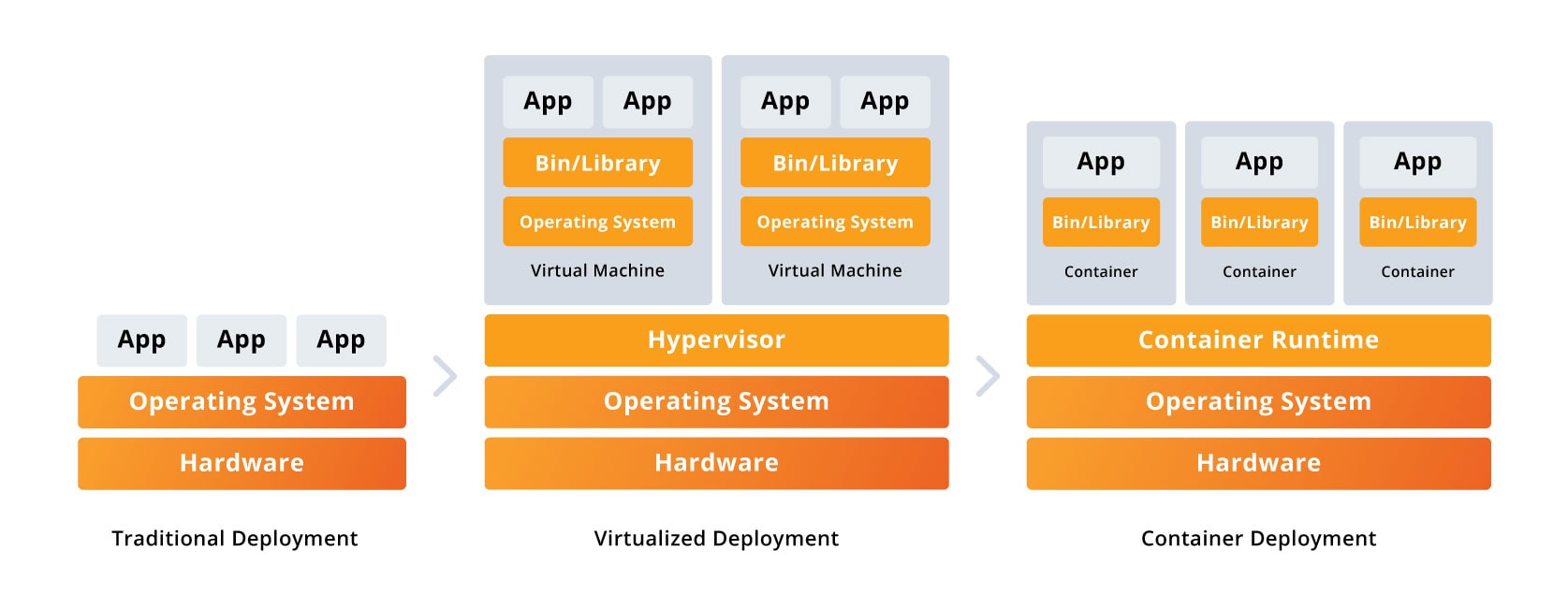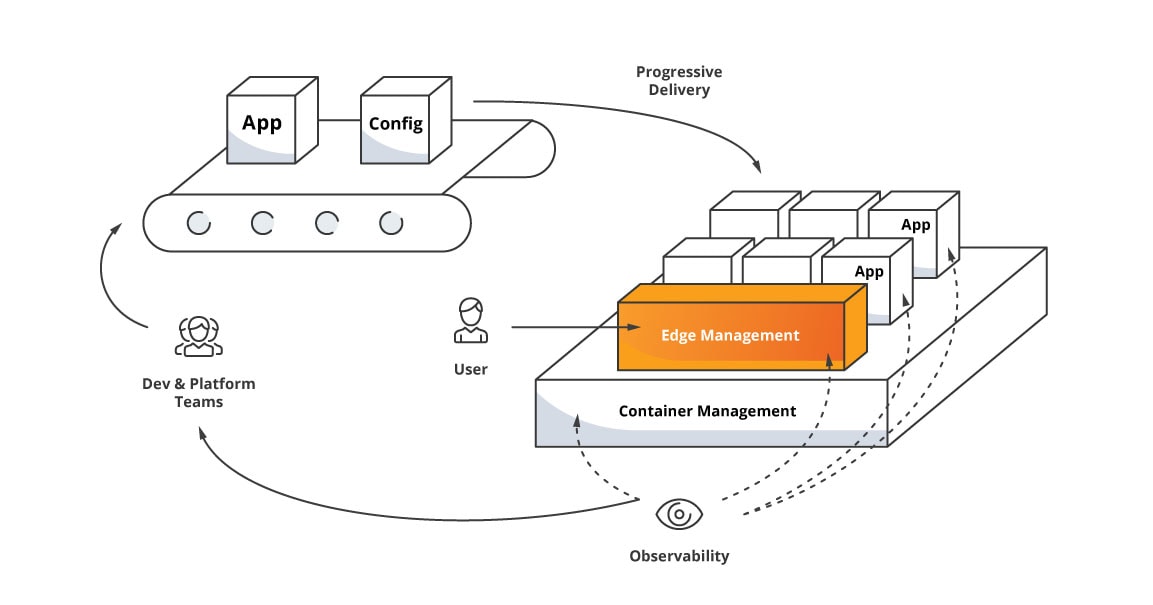
Platform team for Kubernetes
Modern ways of software development call for new solutions. This is why many software development companies decide to use platform teams for Kubernetes.
In this article, we look into what Kubernetes is, what kind of challenges it poses and why having a dedicated platform team which takes care of it is a great idea.
What is Kubernetes?
To start with, let’s speak about Kubernetes itself. As explained on their website:
In the past, software development teams used to run applications on physical servers. Later on, multiple Virtual Machines (VMs) were introduced, and today they are being replaced by containers which are lightweight, have their own filesystem and are portable across clouds and OS distribution. They have great advantages but need proper management to ensure there is no downtime. And Kubernetes is a way of managing them – it provides a framework for doing so, it takes care of scaling and failover for your application and provides deployment patterns.
Kubernetes gives you the following options:
- service discovery and load balancing,
- storage orchestration,
- automated rollouts and rollbacks,
- self-healing,
- secret and configuration management.
Challenges around Kubernetes
Kubernetes may seem like an easy and understandable system, but it’s not perfect. It is not a complete solution, but rather a complex operating system for a cluster, which requires many different components and tools and needs appropriate care and feeding.
Among the most common plugins, you will need to install to support your Kubernetes are those dealing with:
- network layer
- authentication
- authorization
- integration with cloud
- K8s management tool (or service).
In production, Kubernetes is not the easiest of solutions either. Challenges around using it include stability, security, and the management of online application which is being created. In the past, issues around using Kubernetes included repeated outages caused by KIAM (K8s to AWS IAM) authorisation bridge. The remedy was to restart the agent. In the newer agent version there was a feature allowing K8s restart it in case of failure. It’s a great solution, but to make use of it, someone needs to read and understand the KIAM changelog. And that’s not something your team may be ready to do, with so many other things they need to care of on daily basis!
Other important aspects when it comes to Kubernetes are its updates – as all operating systems, Kubernetes gets updated on a quarterly release schedule and you need to be on top of that, as well as of its security, which is crucial for the security of your project.
The solution – platform team
The complexity of Kubernetes and the challenges that arise around using it require solutions that make the whole process easier. When K8s become a part of your business, it needs to be constantly monitored and maintained, and you cannot possibly rely on one person doing it. What you really need is 24/7 access to help – in case the employee who is responsible for Kubernetes gets ill, someone else needs to be able to carry on as efficiently as the predecessor.
This is why more and more companies decide to have platform teams that deal with all aspects of Kubernetes. Having dedicated and well-trained people looking after such an important part of your infrastructure allows your company to benefit from the complexity of Kubernetes solution without risking any problems.
If your company is large enough and have an extensive IT department, it may be a good idea to set up an internal team, responsible for this part of DevOps. Beware of bad practices though: watch out not to have a layered platform team instead, which limit their actions to preserving existing technology only.
If your company is a smaller business, a great solution may be hiring an external partner who could take you on your Kubernetes journey, based on their vast experience in dealing with it on behalf of other companies.
Kubernetes – all you need to know
If you are considering using Kubernetes or would like to speak to someone about an efficient platform team for your K8s, do give us a call. Our experts will be happy to share their knowledge with you!
If you are keen to read more about different DevOps services offered by Future Processing, click here.






